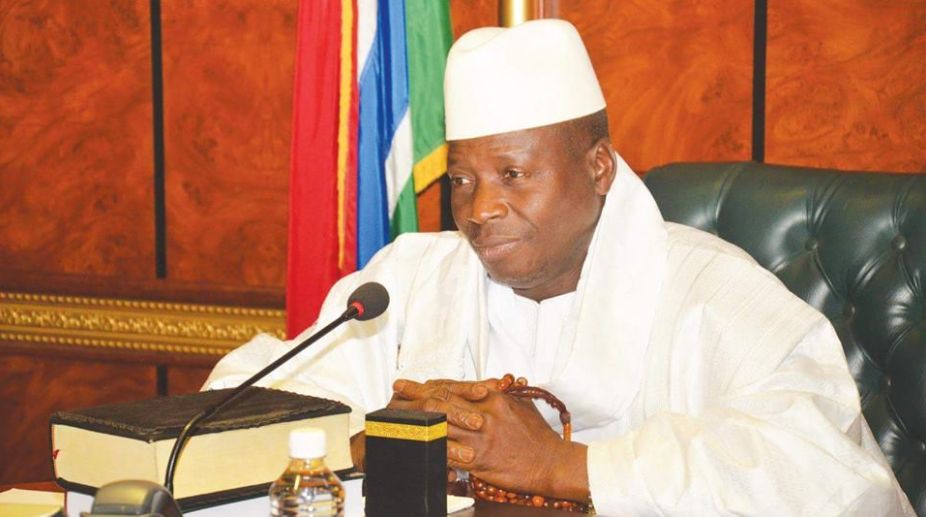Kareena Kapoor skips holi festivities, finds peace in Africa
Discover why Kareena Kapoor traded Holi colors for the tranquility of Serengeti, Africa, in her latest Instagram post.

Yahya Jammeh (PHOTO: Facebook)
A change of guard in faraway Gambia in the impoverished continent of Africa would have scarcely aroused excitement the world over were it not for the criminally sensational departure of President Yahya Jammeh, who had ruled the country as a dictator for 22 years.
In itself, Africa is no stranger to the exit of a beleaguered ruler, indeed a major point of distinction with the Arab region. Jammeh's overdue exit would appear to be sensational not least because he is reported to have fled with no less than $11 million from the state coffers.
Luxury cars and other items were loaded onto a Chadian plane as the repressive dictator left the country. It sure has been a victory for the people; equally there is the loss suffered by the country's exchequer. He had once vowed to rule for “a billion years”… if God willed.
Advertisement
As he boarded the flight out of Gambia for an unknown destination, he must have realised that God has willed differently. He ought to have got the message last December when he lost the election. This had weakened his position further still and had indeed threatened the country with dire instability and violence. And it is a measure of Gambia's inherent instability that Adama Barrow, his victorious rival, took his oath in the embassy in Senegal rather than return to the country which had chosen him as its leader.
Legitimately enough, the country is celebrating its first democratic transition, effected by sustained pressure from across the region… as did Tunisia, Egypt, and Libya six years ago. In a sense, the continent had set its face against Jammeh.
His position had become still more brittle when the African Union warned that it would not recognise him once his mandate expired. More accurately, it was the West African “Ecowas bloc” which was in the vanguard of the movement to oust him.
Indeed, there were preparations for military intervention when repeated attempts at persuasion, by Nigerian President Muhammadu Buhari, Liberia’s leader Ellen Johnson Sirleaf and others failed. By clinging onto the presidential palace in the capital, Banjul, he had defied the verdict of the people and a swathe of Africa in the larger perspective. The dishonourable exit comes about in the wake of the two-pronged pressure — from the country’s populace and several African nations.
Clearly, Jammeh had to countenance a concerted drive, one that is testament to encouraging signs of democratic progress. Senegal and Ghana have often been praised as good examples of democracies within Africa, and Sierra Leone and Nigeria boast democratically elected Presidents.
African leaders in general have realised that hostility to Jammeh had become so virulent that his rule was unsustainable and its continuation was likely to lead to instability in the region. His eclipse has been dramatic; he has been a plunderer while flying out.
Advertisement